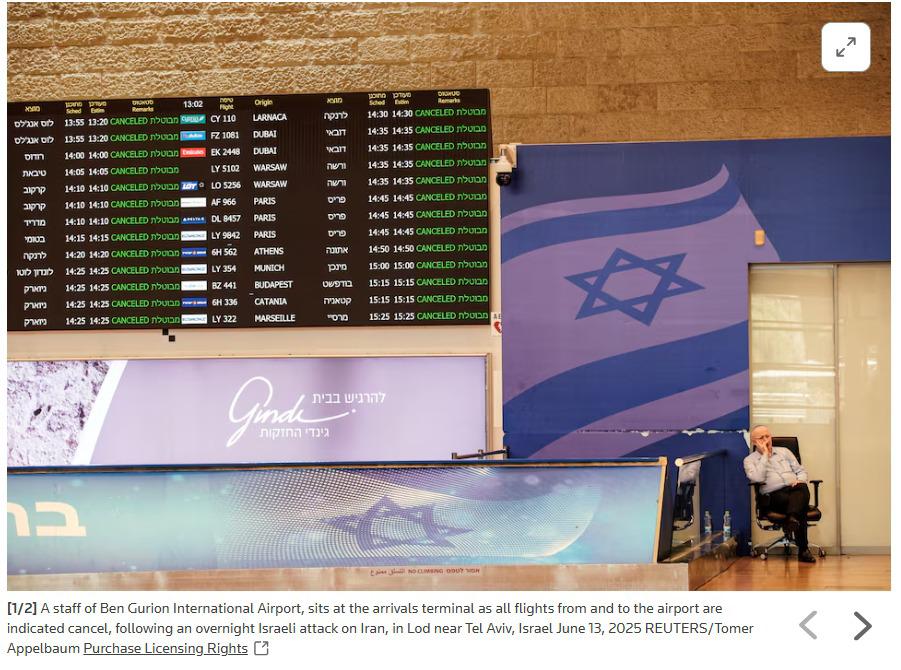Dubai — More than 500 flights were cancelled or delayed Saturday across Israel, the United Arab Emirates, Qatar and Turkey as intensifying conflict between Israel and Iran triggered widespread airspace disruptions.
Major carriers including Delta Air Lines, United Airlines, Emirates, Qatar Airways, Saudia and Air India halted operations or rerouted aircraft as missile attacks, air defense activity and emergency shelter orders gripped the region.
At Tel Aviv’s Ben Gurion Airport, 53 flights were cancelled following Iranian missile strikes reportedly launched in retaliation for an Israeli air raid targeting nuclear sites and senior officials. Delta, United, KLM and FlyDubai were among the hardest hit.
Dubai International Airport faced the highest number of disruptions, reporting 85 cancellations and 184 delays. Sharjah International, also in the UAE, logged 57 more. FlyDubai and Emirates led the list of affected carriers.
In Qatar, Hamad International Airport in Doha saw 22 cancellations and 83 delays, largely impacting Qatar Airways. In Turkey, Istanbul’s Sabiha Gökçen Airport recorded 68 disruptions, with Pegasus Airlines reporting most of the cancellations.
Aviation authorities said the cancellations stemmed from safety concerns and regional instability, with multiple airlines suspending operations or rerouting flights away from missile zones. Airspace restrictions and crew shortages compounded the crisis.
U.S. military forces reportedly helped intercept some of the missiles fired at Israel, but fears of a broader war prompted global airlines to reassess routes through the Middle East.
With tensions escalating, international regulators are bracing for continued disruptions in the days ahead.










